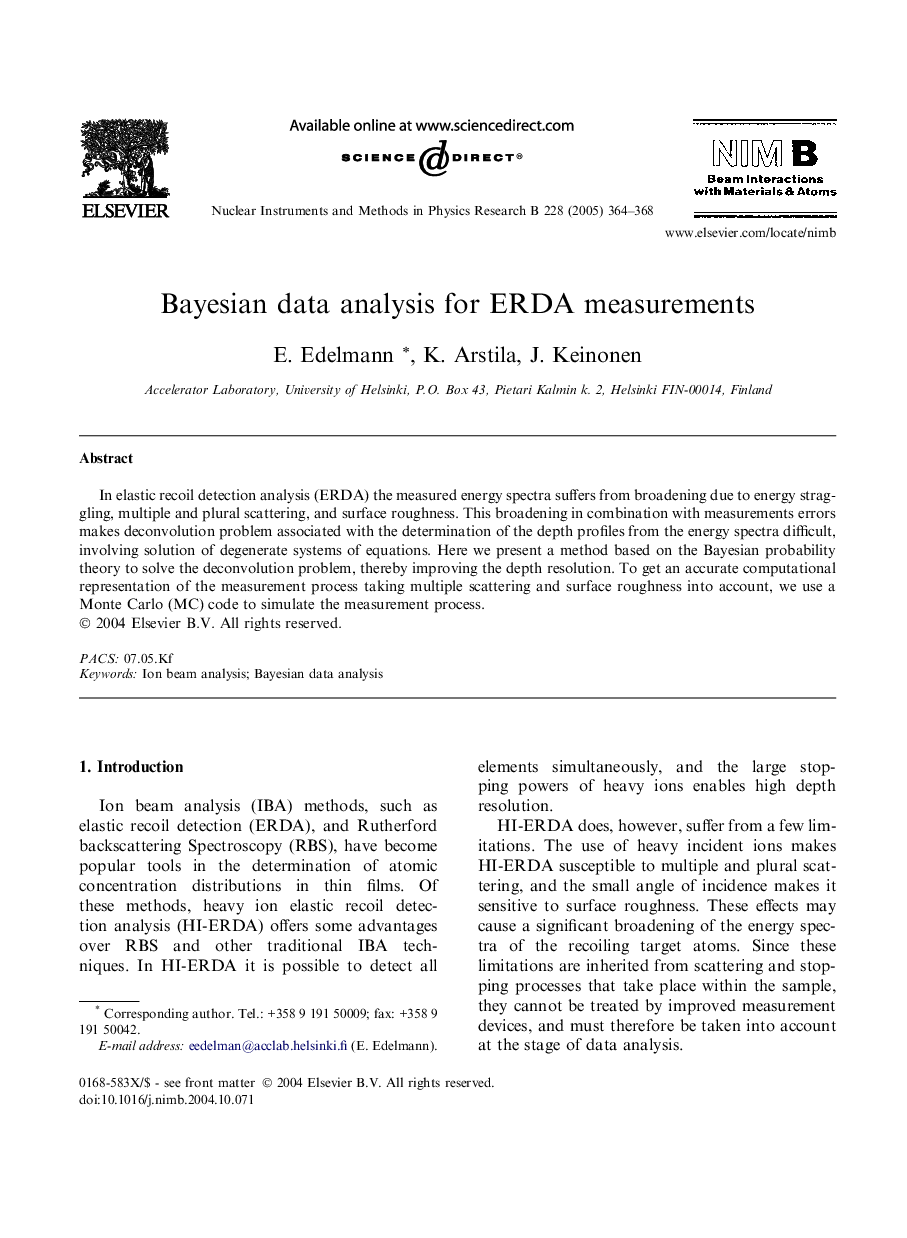| Article ID | Journal | Published Year | Pages | File Type |
|---|---|---|---|---|
| 9818432 | Nuclear Instruments and Methods in Physics Research Section B: Beam Interactions with Materials and Atoms | 2005 | 5 Pages |
Abstract
In elastic recoil detection analysis (ERDA) the measured energy spectra suffers from broadening due to energy straggling, multiple and plural scattering, and surface roughness. This broadening in combination with measurements errors makes deconvolution problem associated with the determination of the depth profiles from the energy spectra difficult, involving solution of degenerate systems of equations. Here we present a method based on the Bayesian probability theory to solve the deconvolution problem, thereby improving the depth resolution. To get an accurate computational representation of the measurement process taking multiple scattering and surface roughness into account, we use a Monte Carlo (MC) code to simulate the measurement process.
Related Topics
Physical Sciences and Engineering
Materials Science
Surfaces, Coatings and Films
Authors
E. Edelmann, K. Arstila, J. Keinonen,
